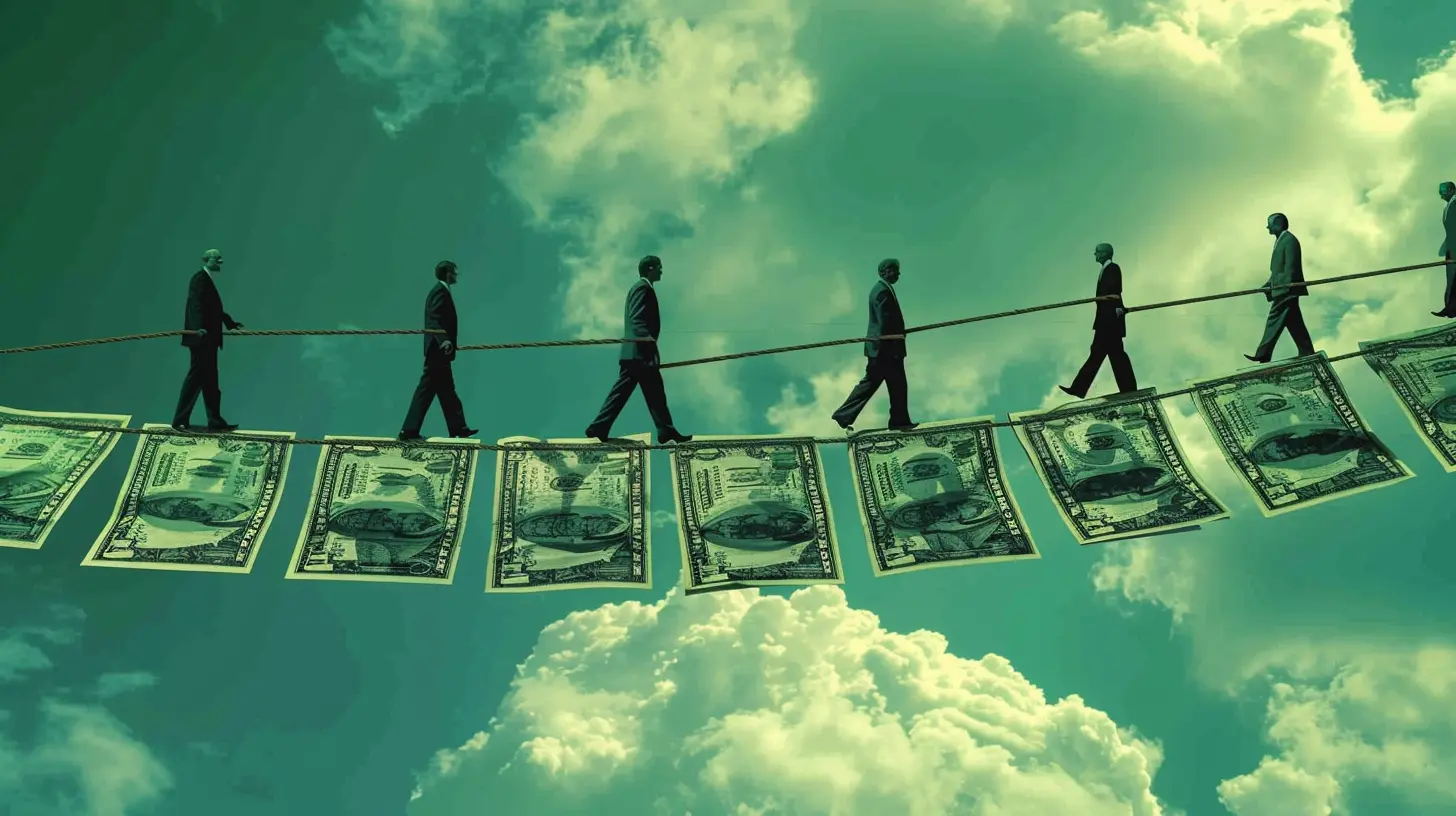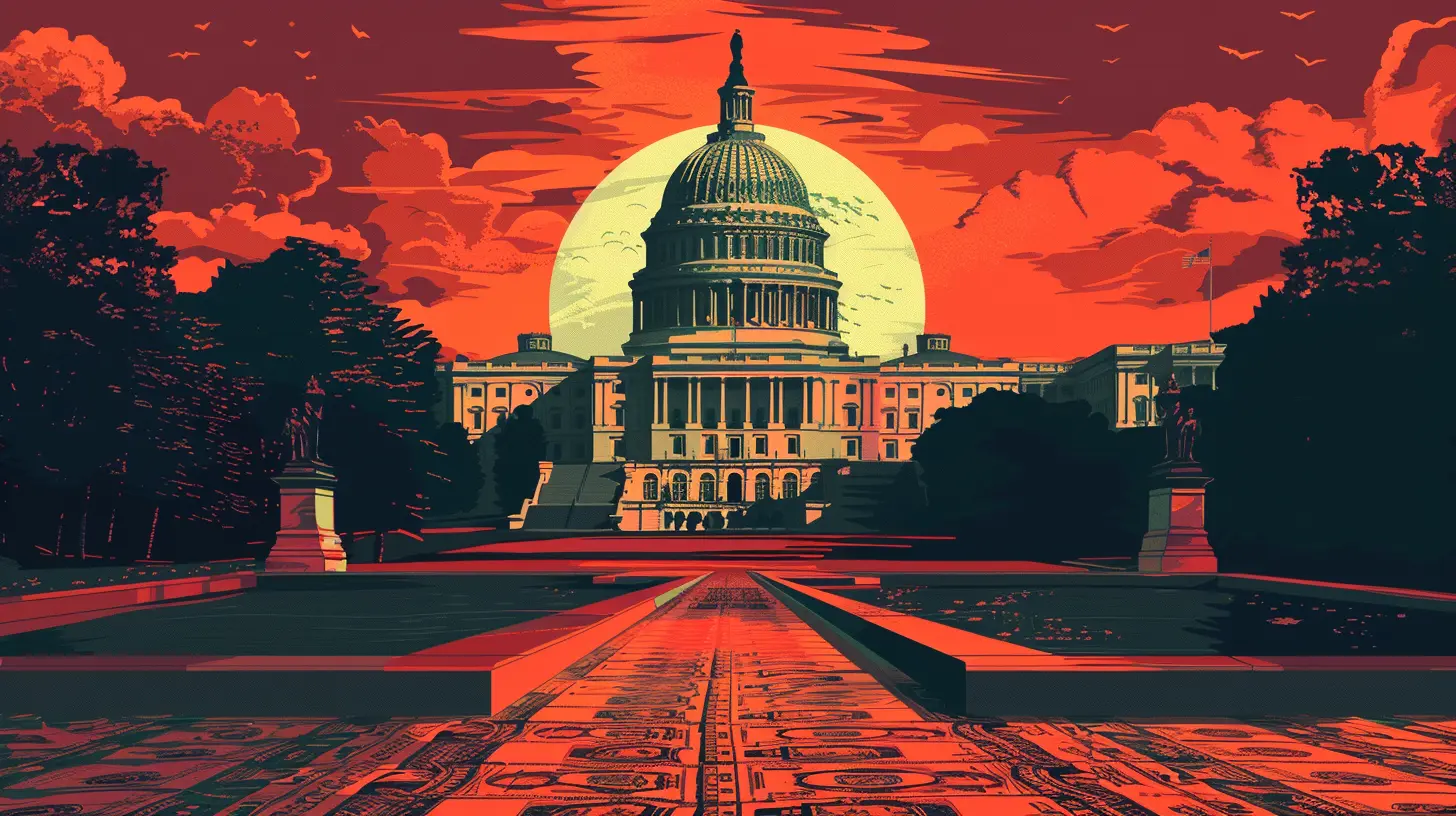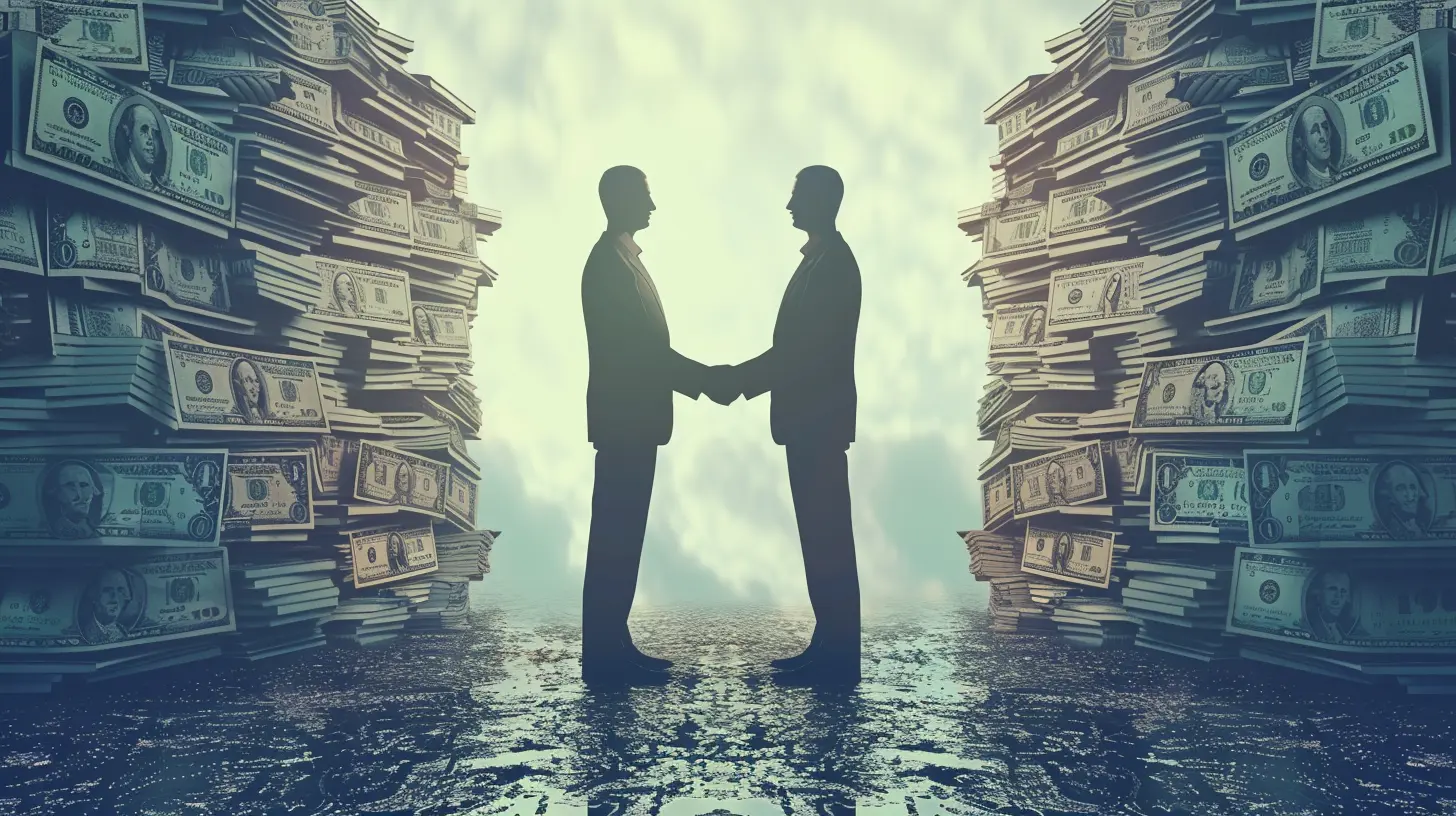How Corporate Lobbying Perpetuates Economic Disparities
16 July 2025
Let’s talk about something many people feel but few truly understand—how corporate lobbying silently shapes the economy in ways that leave the average person behind. You’ve probably heard the term “lobbying” tossed around on the news or social media. Maybe you’ve even wondered how big companies always seem to get their way in Washington.
Well, there’s a reason for that. And spoiler alert: it has a lot to do with money, influence, and the widening gap between the rich and the rest of us.

What Is Corporate Lobbying, Really?
Before we dive into how it affects economic disparities, let's make sure we're all on the same page.At its core, lobbying is when individuals or organizations try to influence legislation or government policy. When corporations do it, they hire professional lobbyists—often ex-government officials or seasoned insiders—to push for laws and regulations that benefit their business.
Sounds fair, right? After all, businesses should have a say in the laws that affect them. But here’s the problem: when those voices are drowning out everyone else’s, we’ve got a serious imbalance.

The Power of the Dollar: Why Lobbying Works
So why is corporate lobbying so effective? Two words—money talks.In 2023 alone, corporations poured billions into lobbying efforts. That’s billions with a "B." They invest in lobbyists like companies invest in new products—because they get a fat return on that money.
Think about it. If spending $5 million on lobbying can net a tax break worth $100 million, that’s a no-brainer investment. It's like sticking a dollar in a vending machine and getting a hundred bucks back.
But here's the kicker—this financial muscle allows big corporations to rewrite the rules of the game in their favor, usually at the expense of smaller businesses and, more importantly, everyday people.

The Hidden Toll: How Lobbying Deepens Economic Inequality
Alright, let’s cut to the chase. How exactly does corporate lobbying fuel economic disparities? Here's how:1. Tax Loopholes That Favor the Rich
Ever wonder how huge companies like Amazon or Netflix manage to pay little to no federal taxes? It’s not magic—it’s lobbying.These companies spend millions of dollars persuading lawmakers to create or maintain tax loopholes that let them dodge taxes legally. Meanwhile, the rest of us—especially middle and lower-income families—carry more of the tax burden.
It’s like playing a board game where one team gets to skip all the penalties just because they slipped the referee a little something. Totally unfair.
2. Weaker Regulations That Hurt Workers
When regulations are rolled back or weakened thanks to corporate lobbying, it's usually bad news for workers.Think about safety standards, minimum wage laws, labor protections—these are the kinds of regulations that protect everyday people. But many corporations lobby to gut these rules, arguing that they’re “bad for business.”
Translation? “Bad for our bottom line.”
And who ends up paying the price? Workers who deal with poor conditions, stagnating wages, and fewer rights.
3. Healthcare Policies That Favor Big Pharma
Here's one that'll hit a nerve—healthcare.Big pharmaceutical companies spend massive amounts lobbying to protect their profits. They fight tooth and nail against legislation that would allow Medicare to negotiate drug prices or bring in cheaper medication from abroad.
Why? Because keeping prices high keeps their profits even higher. While they rake in billions, millions of Americans skip prescriptions or go into debt trying to afford basic care.
4. Killing Competition Through Influence
Lobbying doesn’t just target government rules—it can also squash competition.Corporate giants often use lobbying to pass laws that make it harder for smaller players to enter the market. Whether it's through complex regulatory requirements or exclusive licensing deals, the deck is stacked in favor of big businesses.
Less competition means fewer choices and higher prices for consumers. Plus, it stifles innovation and keeps wealth concentrated at the top.

Lobbying vs. Democracy: Who's Really Represented?
In theory, democracy means every voice counts equally. But when corporate lobbying is in the picture, the truth is messier.Those with deep pockets get VIP access to lawmakers, often behind closed doors. And while average citizens can write letters or attend town halls, they simply can’t match the influence of millions in lobbying budgets.
It's like bringing a Nerf gun to a tank fight.
This unequal influence warps policy outcomes. Instead of laws being made in the public’s interest, they’re too often shaped by the interests of powerful corporations—and that erodes trust in the system.
Trickle-Down Lies and Corporate Narratives
You’ve probably heard the argument: Helping big corporations helps everyone. You know, the "trickle-down" theory.The idea is that if we cut taxes for big businesses and reduce their regulatory burden, they’ll invest more, create jobs, and boost the entire economy.
Sounds nice in theory, right?
But in practice? That money often goes into stock buybacks, executive bonuses, or sitting overseas in tax shelters.
Meanwhile, wages remain stagnant, cost of living climbs, and wealth gaps keep growing. The only thing that seems to trickle down is economic anxiety.
Real-World Examples That Hit Home
Let’s get real with some examples you might recognize:- The 2008 Financial Crisis: Wall Street banks lobbied hard for deregulation in the years leading up to the crisis. After the collapse, many of these same companies got bailed out while millions of Americans lost their homes and jobs.
- Big Tech and Antitrust Laws: Tech giants like Google, Amazon, and Facebook have used their lobbying power to dodge stronger antitrust laws. This helped them grow even bigger and swallow up competitors, consolidating their market power.
- Oil and Environmental Policy: Fossil fuel companies spend billions lobbying to block climate-friendly policies. While the planet heats up, they secure subsidies and delay progress—hurting low-income communities most.
These aren't flukes. They're patterns. And they show how corporate lobbying often leads to policies that protect wealth and power at the top—while leaving the rest behind.
What Can Be Done?
Yeah, it all sounds grim. But don’t lose hope just yet. Awareness is the first step, and there are ways to push back.1. Campaign Finance Reform
Money in politics is the root of many lobbying issues. Limiting campaign contributions and increasing transparency can help level the playing field.Imagine if elections were about ideas, not just fat wallets. Wild concept, right?
2. Lobbying Transparency Laws
Let’s shine some light on lobbying activities. Mandatory disclosure laws can force corporations to reveal how much they’re spending and what issues they’re pushing.If we can’t stop the influence, we can at least see it coming.
3. Support Grassroots Movements
Small-scale, community-based activism still packs a punch. It might not have billions in funding, but it has people power.Think of it as David vs. Goliath. And every once in a while, David wins.
4. Public Pressure and Voting
Lawmakers need votes to stay in office. If enough people care about corporate lobbying and economic fairness, change is possible.So stay informed, speak up, and vote for candidates who prioritize people over profit.
Conclusion: Connecting the Dots
Corporate lobbying isn’t just a behind-the-scenes nuisance—it’s a powerful force that shapes our economy in visible and invisible ways.From tax loopholes and regulatory rollbacks to stifled innovation and crushed competition, the game is rigged—and most of us aren’t even invited to play.
But now that you know how the system works, you can start asking the right questions. Who’s really writing the laws? Who benefits? And what can we do to demand something better?
Because at the end of the day, a fair economy shouldn’t be a privilege for the powerful—it should be a promise for everyone.
all images in this post were generated using AI tools
Category:
Income InequalityAuthor:

Zavier Larsen
Discussion
rate this article
2 comments
Adria McQuillen
This article effectively highlights how corporate lobbying influences policy and exacerbates economic disparities, urging readers to consider the broader implications of corporate influence on democratic processes and equity.
November 26, 2025 at 11:26 AM

Zavier Larsen
Thank you for your insightful comment! I'm glad the article resonated with you and sparked thoughts on the important intersection of corporate influence and democracy.
Brooks Scott
Corporate lobbying often prioritizes the interests of wealthy entities, perpetuating economic disparities by influencing policy decisions to benefit the elite over the many.
July 29, 2025 at 4:45 AM

Zavier Larsen
Thank you for your insightful comment. You're absolutely right; corporate lobbying can skew policy decisions in favor of the wealthy, exacerbating economic inequalities and sidelining the needs of the broader population.


